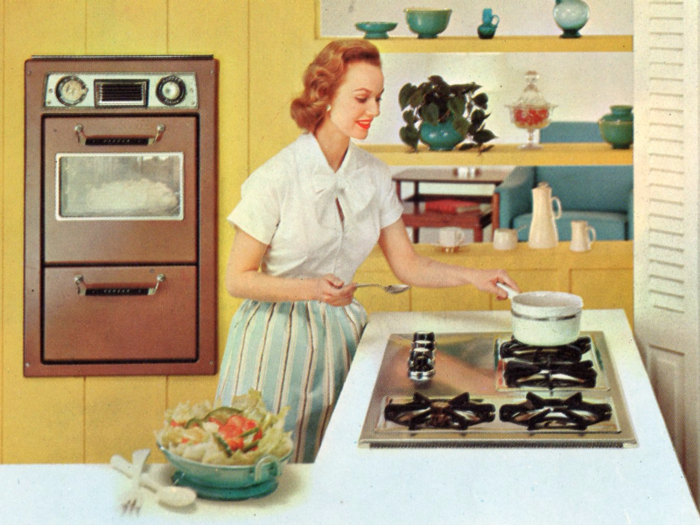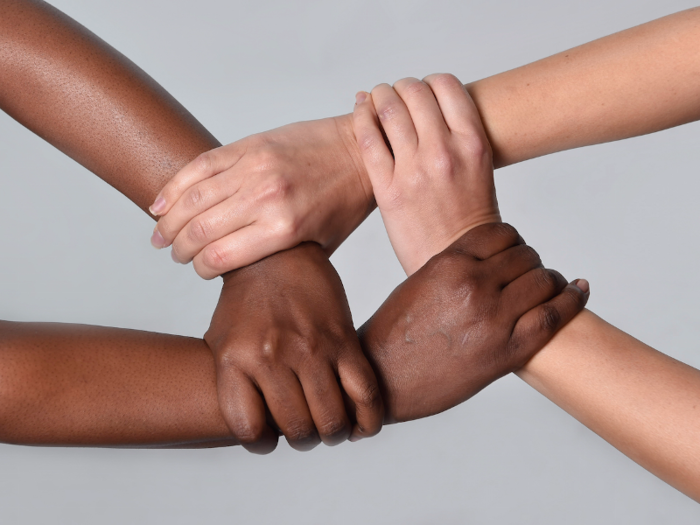- Home
- slideshows
- miscellaneous
- 7 ways millennials' lives are no different than their parents' at their age
7 ways millennials' lives are no different than their parents' at their age
It's still hard for young people to find love

Young people are still job-hopping

Millennials have gotten a rap for treating the job market like a game of leap frog. This is pretty undeserved: Young professionals have always been more inclined to switch jobs than older workers.
As Ben Casselman points out on FiveThirtyEight, job tenure for Americans in their 20s is roughly the same today as it was in the 1980s, according to data from the Bureau of Labor Statistics.
In fact, Casselman notes that millennials are actually changing jobs slightly less often than their predecessors. That suggests they probably aren't moving around enough, given that changing jobs can be a way to both earn more money and find the best fit.
Many young men still struggle with the concept of gender equality

Young people's attitudes around gender equality have shifted — but not in the direction you might think.
A 2017 report from the Council on Contemporary Families found that young adults ages 18 to 25 have grown only slightly more supportive of gender equality in the home since the mid-70s and slightly less supportive since the mid-90s.
Consider: In 1977, approximately 45% of men ages 18 to 25 disagreed with the notion that the man should be the breadwinner and the woman should be the homemaker. In 1994, it was 83%. In 2014, only 55% disagreed.
Other reports suggest that millennial men do support gender equality in the home, but they have a hard time putting those beliefs into action. An article in The New York Times reads:
"Millennial men — ages 18 to early 30s — have much more egalitarian attitudes about family, career and gender roles inside marriage than generations before them, according to a variety of research by social scientists. Yet they struggle to achieve their goals once they start families, researchers say."
That's possibly because of a relative lack of family-friendly policies in the American workplace.
Levels of racism are still disturbingly high among young white people

In a 2009 paper, University of Michigan political scientist Vincent Hutchings reports that "younger cohorts of Whites are no more racially liberal in 2008 than they were in 1988."
For example, among white people ages 18 to 29 who participated in American National Election Studies surveys in 1988, just 54% agreed that the government should support fair treatment for black people in the labor market. Among white people who participated in 2008, 57% agreed.
It's worth noting that, even today, levels of racism don't differ much between the generations. The Washington Post highlighted relevant data from the General Social Survey, captured between 2010 and 2014. One finding is that 23% of millennials rate blacks less intelligent than whites, compared to 19% of Generation X and 24% of Baby Boomers.
Most young people still aren't very pious

A report from the Pew Research Center highlights all the ways millennials' lives have changed — and haven't — in the last several decades.
One finding is that young people (ages 18 to 29) in 2010 were less likely to be religiously affiliated than young people in generations past.
However, young people in 2010 were just about as likely to say they pray daily (41%) as young people were in the 1980s (47%) and 1990s (42%).
Meaningful work is still a priority for young people

Millennials are hardly the first generation to crave something beyond a paycheck.
As leadership consultant and clinical psychologist Constance Dierickx told Fast Company, "The idea that young adults have an urge to do meaningful work is not new."
It's just that it's hard to follow generations over time.
Dierickx added: "I'm a baby boomer, and if you took a list of words about millennials and showed it to baby boomers and asked, 'Does this describe you when you were 21?' we'd say, 'Yeah!’'"
Young people are still being labeled selfish, lazy, and entitled

Think millennials are lazy? Welcome to the oldest club in town.
In 2013, The Atlantic published an amusing list of magazine features over time that have called out young people for being selfish and/or narcissistic.
For example, in 1976, New York Magazine published a cover story by Tom Wolfe titled "The 'Me' Decade and the Third Great Awakening."
And in 1980, The Washington Monthly published a story by Greg Easterbrook that read: "It is tempting to see willing disappointment in romance as a symptom of self-obsession: since no lover can rival in grandeur the upper-case Self, what is to be gained from giving one's affection?"
Popular Right Now
Popular Keywords
Advertisement